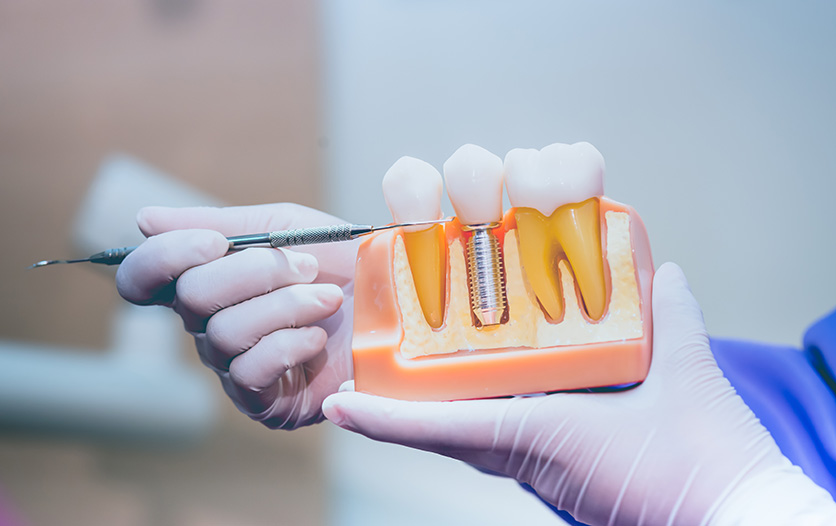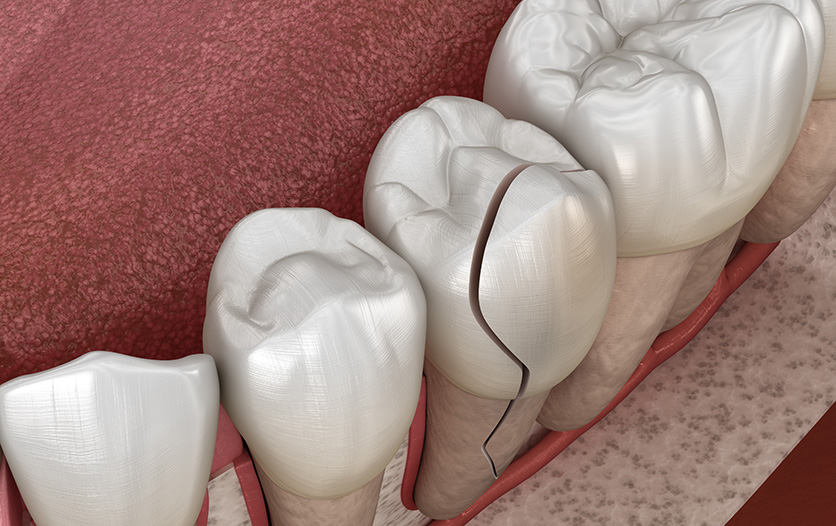
Types of Dental Implants: The Factors to Consider
What is a Dental Implant?
A dental implant is a durable and discreet solution for people looking to replace missing or damaged teeth. Modern implants are almost identical to natural teeth — looking and acting like the real thing.
A dental implant consists of a titanium screw that is placed directly into bone, replacing your missing tooth root. After it’s fitted, the bone surrounding your implant will gradually grow around it, eventually fusing to it. This holds the titanium screw firmly in place. A false tooth (a crown) is then fitted to the top of the implant. The false tooth (or teeth) is similar in shape, size, and color to your existing teeth. Your implant (s) will blend in naturally with your smile and be indistinguishable from your natural teeth.
Why Should I Consider Dental Implants?
Having missing teeth or failing teeth can affect the way you eat, speak, and smile which, in turn, can affect your confidence, overall happiness, and general well-being. Dental implants offer a solution. In fact, they have a higher success rate than any other tooth-replacement option.
With proper care, dental implants can last a lifetime. Compare this to dentures which typically last five to seven years, and bridges which last approximately seven to ten years. Because they’re a fixed solution, you don’t need to worry about removing them to eat or sleep, and there’s no risk of them slipping or falling out when you talk or laugh.
They’re matched to the shape, shade, and size of your other teeth, so they look natural and feel comfortable. If you have missing or failing teeth, it can be challenging to eat certain foods. Because dental implants function the same as natural teeth, no foods will be off limits.
What Are the Different Types of Dental Implants?
Modern dentistry has provided many new advances when it comes to oral health care, perhaps none more noticeable than dental implants. There are different kinds of implants that your dentist an recommend, based on your needs.
- Endosteal Implants: this dental implant is the most common and is inserted into the bone in the jaw, recreating the natural hold of a tooth root.
- Implant Supported Bridge: this dental implant is a solution for those who are missing more than one tooth.
- All-on-4 Dental Implants: This implant is mounted on four implants and can replace both the upper and lower rows of teeth.
- Subperiosteal Implants: this dental implant is a solution for those whose jawbone cannot hold an endosteal implant.
- Zygomatic Implants: this dental implant is implanted into the cheek bone rather than the upper jaw.
Endosteal Implants
Endosteal implants look and function just like natural teeth and stimulate the bone beneath them. When you lose a tooth, the jawbone beneath it physically shrinks as it is no longer stimulated by the tooth root. Over time this can change the shape of your face, causing you to look older than you really are.
An endosteal implant consists of a titanium screw that is placed directly into your jawbone, replacing your missing tooth root. After it’s fitted, the bone surrounding your implant will gradually grow around it, eventually fusing to it. This holds the titanium screw firmly in place. A false tooth (a crown) is then fitted to the top of the implant.
The false tooth (or teeth) is similar in shape, size and color to your existing teeth. It typically takes between four and nine months for implant treatment, depending on whether any preparation work is needed. This is because it takes time for the implant to fuse with the jawbone, which keeps the implant fixed in place. It is possible to have multiple implants. If you have multiple missing or failing teeth in a row, you may be offered another solution, such as an implant-support bridge.
Implant-Supported Bridge
An implant-supported bridge is an option for patients missing two or more consecutive teeth. It is also a consideration if you don’t have enough jawbone to support multiple implants, or if there is a nerve is close by. Implant-supported bridges are very similar to traditional bridges. However, instead of being supported by dental crowns placed over adjacent teeth, implant-supported bridges attach to small titanium posts embedded in the jaw. The number of posts placed will depend on the size of the bridge.
All-on-4 Dental Implants
This implant is a great alternative for replacing a full set of top or bottom teeth. As the name implies, there are four implants needed to support a full-arch prosthesis. Six implants may be needed for upper arch, with four in the lower arch. A temporary set of replacement teeth can be placed the same day. After approximately six months or so, a permanent set of replacement teeth are placed onto the implants. This waiting period is to allow the tissue to heal and provide time for screws to bond to the bone.
Subperiosteal Implants
Subperiosteal implants are placed on the jawbone within the gum tissue, with the metal implant post exposed through the gums to hold the teeth. Endosteal implants begin by first drilling into the jawbone to insert a titanium screw that acts as an artificial root. Before you can finish the treatment, you must wait for the soft tissue and bone to heal around the root. This can be up to a couple of months. Subperiosteal implants are not as commonly used as endosteal implants, however it is a good option for those whose jawbone cannot support the titanium screw, for whatever reason. If you naturally have a narrow jawbone ridge or perhaps one that is shortened or worn down due to trauma or disease, a subperiosteal implant may be your best option.
Zygomatic Implants
Zygomatic Implants are dental implants that are anchored in the zygoma, or cheekbone. Just like endosteal and subperiosteal implants, zygomatic implants offer a lifetime solution that is comfortable, strong, and match the look and feel of natural teeth. Typically, zygomatic implants are used to replace a full set of teeth in the upper jaw for patients who have severe bone loss in the maxilla, or upper jaw. No bone grafting or sinus lifts are needed. The zygoma is a very dense bone and provides excellent implant support for the lifetime of the patient.
Questions about dental implants?
When it comes to replacing teeth that are missing or damaged, you have several options. They all look natural, restore your bite strength, prevent changes in facial features due to bone loss, enable natural speech, are immune to cavities, easy to care for with simple brushing and flossing, never slip, support adjacent teeth, and offer a permanent solution to tooth loss. A beautiful and healthy smile truly is just a phone call away.
Consult Evers Dental today for more information regarding dental implants. We pride ourselves on offering a welcoming, compassionate, and complete approach to dental care. How can we help you?




